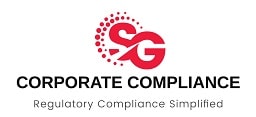Types of business structures in Singapore
Types of business structures in Singapore
Establishing a company in Singapore comes with a great array of benefits, but also its fair share of challenges. Before you start promoting your services or products in Singapore, you need to have a business entity to do so. Therefore, it is important to choose the right types of business structures in Singapore that suits your needs and future goals. There are 4 main types of business structure in Singapore to choose from, and each one has its own pros and cons. With that in mind, here we are covering some of the key factors of each business entity you can set up in Singapore.
Sole proprietorship/ Partnerships
The business entity is owned by a single person for Sole proprietorship and two or more persons for Partnership (up to 20 partners). There is a very minimal compliance requirement to comply with. Basically, the owner will have to submit its trade profit when filing for his own individual income tax. Additionally, the owner will also be required to contribute/top up the CPF Medisave before they can renew the business license.
However, the downside of this business structure will be it is not a separate legal entity. Therefore, any liabilities will be direct to the owner. That means you are liable for any debts or obligations related to your business.
If you are looking to start something small, this will be the best option for a business set up.
Limited partnership (LP)
The Limited Partnership is slightly different from the above, as one of the partners is limited to liabilities and there are no limits to the number of partners. It is formed by having at least 1 general partner and 1 limited partner. However, the general partner will be personally liable for the debts and losses of the LP. Whereas, the limited partner will not be liable for any liabilities. The compliance obligation is similar to the Partnership, such as filing the trade profits when submitting the personal income tax and topping up the CPF Medisave account.
Limited liability partnerships (LLP)
A totally different Partnership structure whereby the individual partner is limited to any liabilities. Generally, this type of structure is suitable for lawyers, accountants, and other professionals. This entity requires at least 2 partners with no maximum limits. Although the partners are limited to liabilities, they are still liable for the debts and losses if it is caused by their own wrongdoings. And in this case, the liabilities will not be reflected to other partners.
An Annual declaration of solvency must be file to ACRA within 3 months after its financial year-end. Profits are tax at the partner’s personal income tax rate. Form P has to be submitted to IRAS prior to the filing of income tax.
Company
This is the most common form of business structure, which is also known as a private limited company. It can be either own by shares or through guarantee. As such, it is a separate legal entity from its directors and shareholders. The minimum requirements to incorporate a company is having at least 1 local resident director and 1 shareholder. The best part is that a foreigner can own 100% of the company.
However, there are more compliance obligations to fulfill for a private limited company. A company secretary has to be appointed within 6 months after incorporation and the role cannot be vacant for more than 6 months. Filing of Annual return to ACRA and holding of Annual general meetings are also part of the requirements. The financial statements will be present to the shareholders during the annual general meeting. Profits will be tax at the corporate tax rate and have to be submitted to IRAS via Form C or Form C-S.
The Director of the company is responsible for all the statutory obligations. Failure to comply will incur penalties and serious consequences.
Factors to consider when selecting a business structure.
It’s important to understand what type of business entity you will need to run a business in Singapore. As each structure has its own pros and cons, you will have to take into consideration before committing to it. To help you assess your options better, you may ask the following questions to yourself:
- Are you planning to scale your business within 1 year?
- Do you have a business partner?
- What is your business sector?
- What is your risk appetite?
- How much capital are you investing in this venture?
- What liabilities and responsibilities are you prepared to assume?
Although the business structure is suitable for you now, it may not be the case when the business starts to grow or many others factor comes into play.
We have helped many business owners to assess their plan and advise the best option. From setting up the company/business to ensuring the compliance obligations are fulfilled, we are always there to support you.




